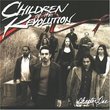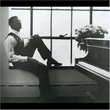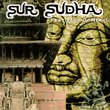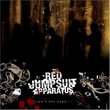| All Artists: Mark McKenzie Title: The Disappearance Of Garcia Lorca (1997 Film) Members Wishing: 0 Total Copies: 0 Label: Intrada Records Original Release Date: 9/12/1997 Re-Release Date: 11/18/1997 Album Type: Soundtrack Genres: Pop, Soundtracks Style: Number of Discs: 1 SwapaCD Credits: 1 UPC: 720258708021 |
Search - Mark McKenzie :: The Disappearance Of Garcia Lorca (1997 Film)
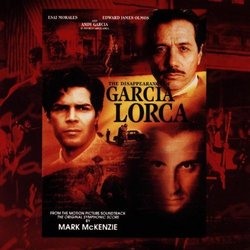 | Mark McKenzie The Disappearance Of Garcia Lorca (1997 Film) Genres: Pop, Soundtracks
|
Larger Image |
CD DetailsSimilar CDs
Similarly Requested CDs
|
CD ReviewsBrings Lorca Larger than Life Elderbear | Loma Linda, Aztlan | 05/27/2001 (4 out of 5 stars) "I picked this movie up on several different excursions to the video store. Finally, I risked bringing it home, having never before heard of Federico Garcia Lorca. The opening sequence, where Garcia recites an English translation of Lorca's "Llanto por Ignacio Sanchez Mejias" over footage from the Spanish civil war, ignited something for me that the rest of the movie couldn't put to rest. Who was Lorca? What happened during the Spanish civil war? The hints dropped in the movie weren't enough. I now own the movie, books on the Spanish civil war, and Lorca's poetry, both in Spanish (which I read poorly) and English (some translations are more poetic than others, but he's providing plenty of impetus to polish my Spanish).(Lorca was a homosexual Spanish poet & playwright, whose work is well worth reading, even in translation. Death, nature, and the indomitability of the human spirit were central themes to his lyrical, almost Zen at times, poetry. The Spanish civil war is much to complex to explain here. Orwell's "Animal Farm" gives an allegorical point of view, his "Homage to Catalonia" gives a more autobiographical perspective.)The movie invents the story of Fernando, the child of a bourgeois Spanish businessman, who idolized Lorca as a child. In his early 30's, living with his family as expatriates in Puerto Rico, he cannot seem to bring a book he's writing about Lorca together. He sets out for Granada, his home town, to discover "The Truth" about Lorca's end.During the movie, he discovers many "truths" about Lorca's final moments; not all of them support each other. He encounters a girl pal of his from childhood and develops that relationship. He also must deal with the harsh realities of fascism and censorship. Perhaps at its deepest level, this is a movie about the problem of History?sorting out which history to tell, since The True History is not available.Andy Garcia plays a noble Lorca, a character easy to idolize. He's larger than life--mythic, really, and that fits well with Fernando's quest for a childhood hero. In this age where most celebrities can propel a ball in some special manner, make popular sounds on the radio, or enact trivialities on a screen, having a poet for a hero is a pleasant change. Throughout the movie, Garcia narrates Lorca's poems. Nobody feels safe telling what they witnessed, not even Colonel Aguirre, a friend of Fernando's family. Beneath the seemingly normal veneer of this portrait of Franco's Spain, violence...looms. When the State fails to preserve individual rights, terror inevitably becomes woven into the very fabric of society. Lines from Lorca's "Llanto" show up at different places in the movie. The "Llanto" was a poem written after the death of Lorca's friend Ignacio Sanchez Mejias in the bull arena. Mejias had retired, had joined the world of the arts for a time, then returned to the ring, only to die after being gored by a bull. This helps tie the opening of the movie together with some of the climactic scenes towards the end. The movie could have been more artistic, more poetic. Although Lorca wrote some great love poetry, the love interest in the movie does not live up to Lorca's romantic words. More could have been done with Lorca's theme of death throughout the movie, explicitly contrasting the life affirming ending. Although a powerful movie, it had room for improvement?perhaps explaining less and dancing more poetically with the viewers.Five star subject matter with four star execution. I found the story far more powerful after having read Lorca and learned more about the Spanish civil war. Get a copy of the movie, get Lorca's "Selected Verse: a bilingual edition," edited by Maurer, read Orwell's "Homage to Catalonia" and Bookchin's "The Spanish Anarchists: The Heroic Years." You'll never experience the world quite the same way again.(If you'd like to dialogue about this movie, click on the "about me" link above & drop me an email. Thanks!)" Excellent! Elderbear | 04/24/2001 (4 out of 5 stars) "A stellar performance by Andy Garcia and other American actors of Hispanic descent. The opening scene has Garcia, playing Lorca, reciting one of the Lorca's most moving poems "Death in the Afternoon" that sets the stage for the entire movie. It is an artistic film, but with drama and tension. I use it in my upper level university history course, and students, accustomed to mindless shoot-'em-ups, sit transfixed. Characters you can identify with, a history shrouded in mystery, dialog that has meaning, and scenes that capture the imagination. Film making like I thought we forgot how to make in the USA. Great stuff!" Elegant And Interesting If Not Controversial. Mr. Fellini | El Paso, Texas United States | 04/24/2000 (4 out of 5 stars) "Marcos Zurinaga's "The Disappearance Of Garcia Lorca" has style and talent, if the script were a little stronger this would surely have been an exquisite masterpiece. Still, it's always interesting, intriguing and sometimes romantic. And yes, it's entertaining. But "The Disapperance Of Garcia Lorca" is important in another area which is that it brings to the screen the mystery behind the murder of one of the best known poets. Though it doesn't come alive as it would have with a director like Oliver Stone or Michael Mann, Zurinaga captures a romantic poetic feeling here, and a dark conspiratorial one too. Andy Garcia gives a convincing performance. The film itself is elegantly mounted in the sets, cinematography and costumes. This is good filmmaking with the promise of being greater. Like "American History X," "The Disappearance Of Garcia Lorca" would have benefited from being a 3 hour movie rather than try to cover so much in only two. Especially considering it's sources being two books by Ian Gibson, "The Assassination Of Garcia Lorca" and "Federico Garcia Lorca: A Life." Still, the movie is full of great performances and style. It's important because of it's history (though the ending leaves a lot of questions of it's theory of who killed Lorca). I recommend you read the Gibson books after watching the film or before, because to an extent the film can't survive without them. Some polishes to make a longer script and this would have been great cinema. It works, but doesn't reach it's peak of greatness. The real film of the conspiracy to kill Lorca is still yet to be made. Let's hope Oliver Stone's conspiracy juices start spinning again, this film by him would surely win Best Picture. In the end, "The Disapperance Of Garcia Lorca" is worth watching. Good film."
|

 Track Listings (19) - Disc #1
Track Listings (19) - Disc #1
